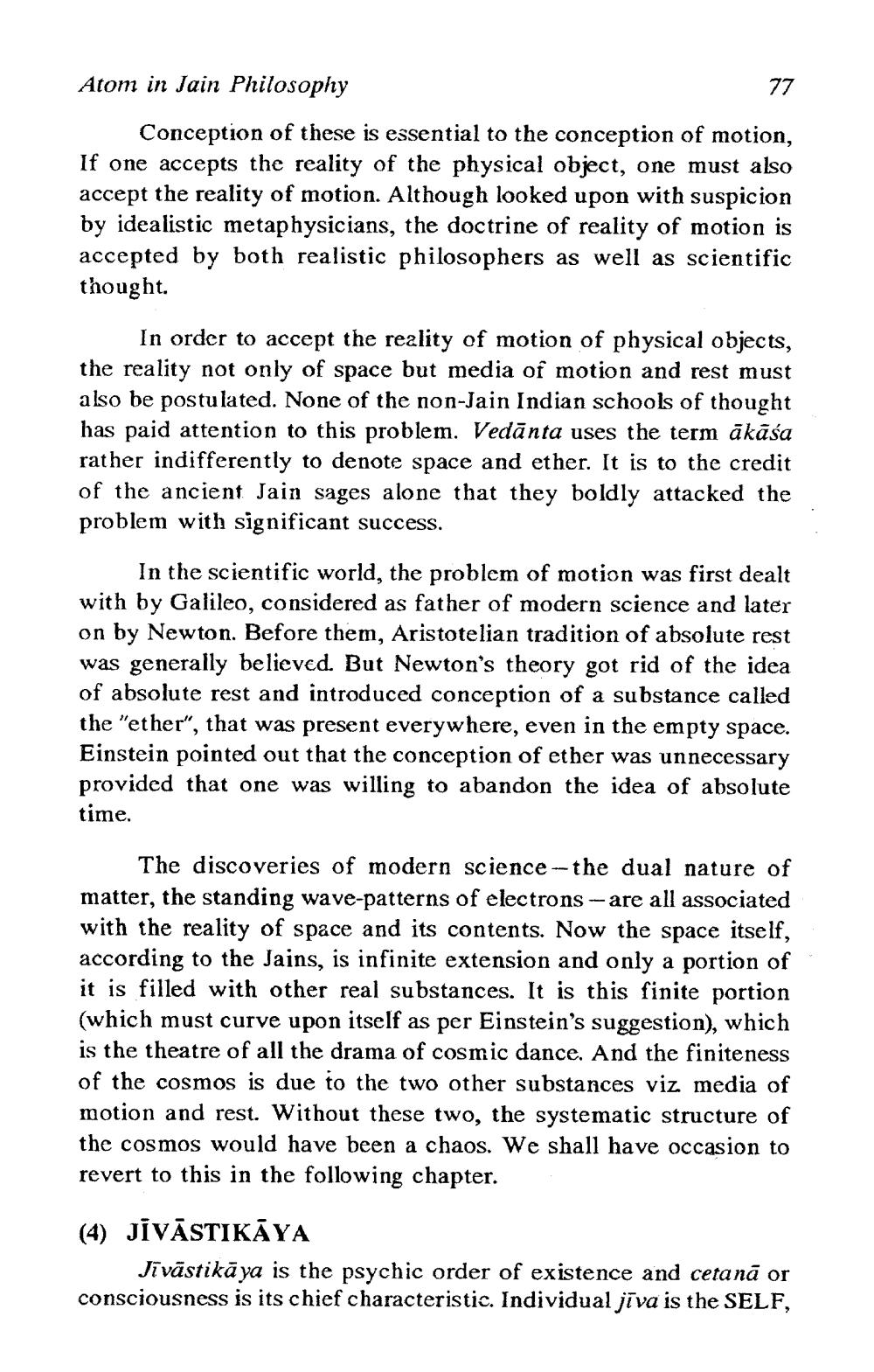________________
Atom in Jain Philosophy
77
Conception of these is essential to the conception of motion, If one accepts the reality of the physical object, one must also accept the reality of motion. Although looked upon with suspicion by idealistic metaphysicians, the doctrine of reality of motion is accepted by both realistic philosophers as well as scientific thought.
In order to accept the reality of motion of physical objects, the reality not only of space but media of motion and rest must also be postulated. None of the non-Jain Indian schools of thought has paid attention to this problem. Vedānta uses the term ākāśa rather indifferently to denote space and ether. It is to the credit of the ancient Jain sages alone that they boldly attacked the problem with significant success.
In the scientific world, the problem of motion was first dealt with by Galileo, considered as father of modern science and later on by Newton. Before them, Aristotelian tradition of absolute rest was generally believed. But Newton's theory got rid of the idea of absolute rest and introduced conception of a substance called the "ether", that was present everywhere, even in the empty space. Einstein pointed out that the conception of ether was unnecessary provided that one was willing to abandon the idea of absolute time.
The discoveries of modern science-the dual nature of matter, the standing wave-patterns of electrons - are all associated with the reality of space and its contents. Now the space itself, according to the Jains, is infinite extension and only a portion of it is filled with other real substances. It is this finite portion (which must curve upon itself as per Einstein's suggestion), which is the theatre of all the drama of cosmic dance. And the finiteness of the cosmos is due to the two other substances viz media of motion and rest. Without these two, the systematic structure of the cosmos would have been a chaos. We shall have occasion to revert to this in the following chapter.
(4) JĪVĀSTIKĀYA
Jīvästikāya is the psychic order of existence and cetanā or consciousness is its chief characteristic. Individual jīva is the SELF,




